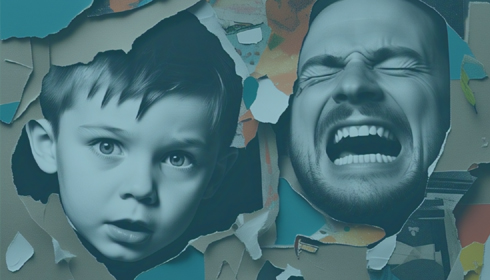
Break the Cycle: How Childhood Trauma Shapes Parenting and Abuse Across Generations
A recent peer-reviewed study from the University of Fukui, Japan, sheds new light on a deeply entrenched public health concern—how childhood maltreatment (CM) gets passed from one generation to the next. The study, published in Scientific Reports (March 2025, Vol. 15), explores how emotional empathy and depressive symptoms act as bridges between a parent's own history of childhood abuse and their current parenting style.
Led by graduate researcher Yuko Kawaguchi, along with Professors Shota Nishitani, Takashi X. Fujisawa, and Akemi Tomoda, the study uses path analysis to map relationships between childhood trauma, emotional functioning, and parenting behaviours. The findings not only reinforce previous research on intergenerational abuse but also identify specific emotional pathways—especially affective empathy and depression—that could be targeted in interventions.
"We aimed to understand maltreatment not as a binary but along a nuanced spectrum," Kawaguchi stated.
During the course of the study, researchers compared two distinct groups of mothers: 13 women with histories of both experiencing and perpetrating CM and 42 women with no such background. The goal was to better understand how past trauma shapes current emotional and parenting patterns.
To dig deeper into mothers' psychological profiles, the researchers used a battery of standardised tools. The Childhood Trauma Questionnaire (CTQ) and Adverse Childhood Experiences (ACE) scale helped quantify the extent and nature of their early-life traumas. We used the Interpersonal Reactivity Index (IRI) to measure empathy and assess how these experiences might influence emotional engagement with others, particularly their children. The study also examined mental health through the Self-Rating Depression Scale (SDS), revealing how past wounds may still echo in present depressive symptoms. Finally, the Parenting Scale (PS) offered insights into their current parenting styles, shedding light on whether cycles of maltreatment might be consciously or unconsciously repeated.
Together, these assessments painted a nuanced picture of how deeply personal histories can manifest in parenting behaviours, potentially perpetuating or disrupting intergenerational cycles of trauma.
Results revealed that mothers with past abuse scored significantly higher on trauma metrics. These higher scores correlated with increased personal distress—a component of emotional empathy that, paradoxically, may impair a parent's ability to comfort or guide a child. This distress was also linked to higher depression levels.
In other words, trauma didn't just lead to abusive parenting directly. It increased emotional sensitivity in a way that overwhelmed the parent, making it harder to regulate mood or offer consistent care—ultimately increasing the likelihood of passing on abusive patterns.
While this study is based in Japan, its implications resonate strongly in India, where child abuse remains pervasive and often underreported. According to the Ministry of Women and Child Development’s 2007 study, over 69% of children in India reported having faced physical abuse, with 88.6% of them being abused by parents. The report also highlighted that boys were equally, if not more, vulnerable—challenging gendered assumptions about victimhood.
Further, the Lancet Psychiatry (2020) study involving 34 low- and middle-income countries found that maternal mental health conditions—especially depression and anxiety—were strongly associated with aggressive or neglectful parenting, particularly in South Asia.
Indian parenting is often steeped in authoritarian values, with little emphasis on emotional expression or mental health. A 2023 NIMHANS survey revealed that less than 10% of parents in rural India had access to mental health care, and only 4% received parenting guidance. This gap becomes even more critical when combined with childhood trauma.
In India, trauma and depression are often trivialised or stigmatised. Generations have grown up normalising phrases like "we were beaten, and we turned out fine." But such normalisation masks emotional scars that influence how future generations are raised.
Experts emphasise that community-based parenting programmes, accessible mental health counselling, and school-based early intervention are key to breaking this cycle.
Global research offers promising models. For instance, the Nurse-Family Partnership Program in the U.S., which offers regular home visits to first-time mothers, has shown a 48% reduction in child abuse cases over time. While such programmes are expensive, localised and scalable models like India’s Integrated Child Development Services (ICDS) can be enhanced with trauma-informed training modules for Anganwadi workers and ASHA volunteers.
In addition, empathy training—typically reserved for therapists and carers—could be extended to parents with known trauma histories. Early trials of such interventions in urban Bengaluru, conducted by the NGO Childline India, showed improved emotional regulation among participating mothers over a 6-month follow-up.
This study from the University of Fukui pushes us to rethink what it means to “inherit trauma”. It’s not about blame—it’s about understanding that emotional wounds often become behavioural patterns, especially in parenting. In India, where public health still sidelines mental well-being, the idea that emotional empathy can be both a vulnerability and a path to healing is a crucial insight.
Breaking this cycle requires more than awareness. It demands integration—of mental health into parenting education, of emotional skills into school curricula, and of empathy into public policy. The time has come to treat parenting as an act of mental health, not just a cultural duty.